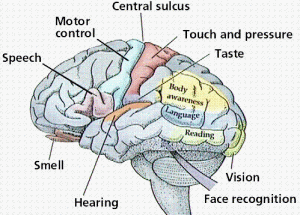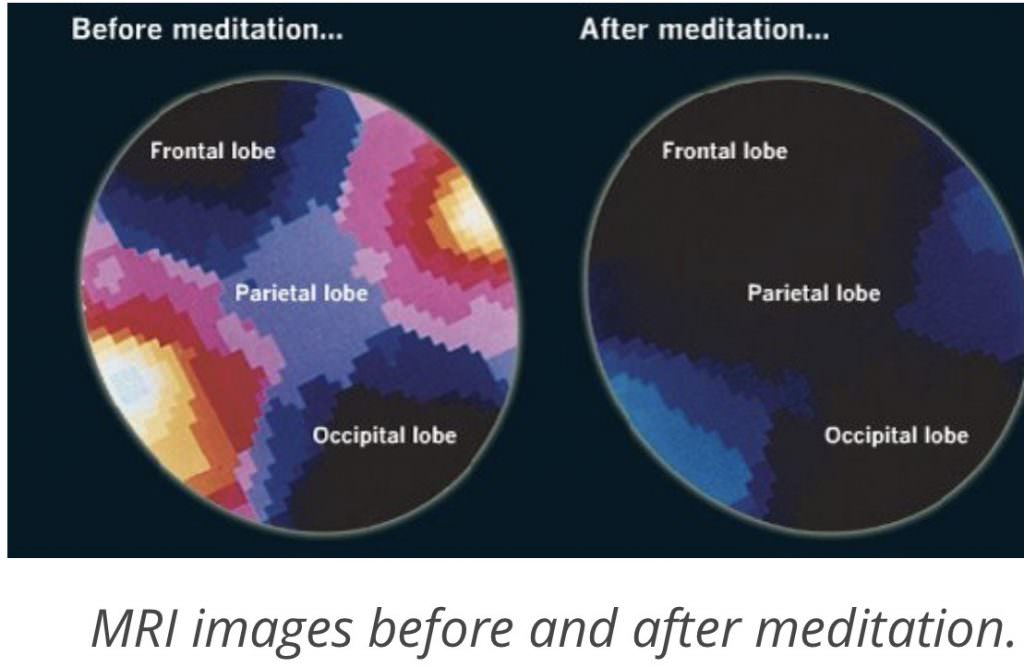Meditation Alters Cognitive Brain Function/
Benefits of Meditation on the Brain
The most universal forms of meditation evolved from the spiritual cultures of Hinduism and Buddhism which can be traced to around 1500 BCE. Over the course of time, meditation practices and techniques have been interpreted by the cultures in which they were introduced.
There exists a great diversity of technique but the results of meaningful meditation, in every form, maintain a common denominator.
The advancement of medicine has allowed researchers to study the benefits of meditation in the brain as never before, and the scientific evidence is overwhelmingly evident that meditation can actually alter brain function and structure. The modern world has resulted in the production of the most highly sophisticated medical equipment, allowing researchers more access to functions of the human body than was ever expected a few decades ago.
In conjunction with skilled masters of medicine, engineering and computer technology, the knowledgeable teams of physicians and other medical professionals who have dedicated themselves to how meditation affects the brain, the answers are more reliable than ever.
In fact, meditation has been scientifically proven to be so effective that it would not be a misnomer if it were known as Cognitive Brain Therapy.
Different Techniques Influence Different Brain Function
Different cognitive brain functions are involved when comparing the meditative states influenced by Hinduism (loss of sense of self/duality) with Buddhism (mindfulness). Each practice activates different brain networks.
Involvement of the Senses – How Many Senses do Humans Have
To help us relate to how meditation can possibly promote physical changes to brain structure, it is relevant to understand the involvement of the senses. While there are probably many who have studied the body, most of us interpret the senses as the commonly referred to “Five Senses.”
However, one definition of “sense”:
Any system that consists of a group of sensory cell types that respond to a specific physical phenomenon and that corresponds to a particular group of regions within the brain where the signals are received and interpreted.
The senses can be divided into exteroceptive and interoceptive:
- Exteroceptive senses perceive the body’s own position, motion, and state, known as proprioceptive senses.
- Proprioceptive senses include nociception (pain); equilibrioception (balance); proprioception (awareness of position and movement of parts of one’s own body).
- External senses include the traditional five: sight, hearing, touch, smell and taste, but also includes asthermoception (temperature differences) and an additional weak magnetoception (direction).
Interoceptive senses are senses that perceive sensations in internal organs.
When you’re mindful and paying attention to breathing, sounds and the present moment, cognition is slowed down which enhances the senses.
With this extended definition of the “senses,” and the following explanation of the differences in the cultural influences on meditation:
Buddhist Influence – Mindfulness is achieved through focused attention on the body, breathing and control of thought.
Hindu Influence – The goal is to reach a state of nothingness, resulting in a loss of sense of self and duality (the mind and body acting as one).
I, for one, was in a better position to accept what the research revealed.
Evidence – Affected Brain Structures
The brain network related to Buddhist-influenced meditation stimulates activity in part of the frontal lobe structures of the brain. The frontal lobe structures are associated with the working memory, mental flexibility, and self-control (coordinating with each other). This confirms that the essential element of “mindfulness” based meditation is neuro-biologically effective.
Hindu-inspired meditation triggers a left lateral network of areas of the brain, including the postcentral gyrus, the superior parietal lobe, the hippocampus and the right middle cingulate cortex.
Separating the anterior (front) and posterior (back) networks of the brain scientifically establishes that various meditation styles are linked to different patterns of neural activation networks. This simply means that neurons in the brain will process information based on external sources (meditation techniques) and the front and back of the brain are affected differently.

Long-term meditation increases brain gray matter in the following regions and these changes are evident within eight weeks of daily meditation.
- insula
- sensory regions
- sensory and auditory cortex
Sara Lazar, PhD (who began her studies on the effects of meditation after using Yoga as physical therapy from a marathon training injury) explains:
Meditation literally changes brain structure.
Sources:
http://www.nmr.mgh.harvard.edu/~lazar/
http://www.massgeneral.org/about/pressrelease.aspx?id=1329
http://www.sciencedirect.com/science/article/pii/S0278262614000578?via%3Dihub
http://udel.edu/~kkneisel/ART307/Project%201/project1_1a/
https://www.washingtonpost.com/news/inspired-life/wp/2015/05/26/harvard-neuroscientist-meditation-not-only-reduces-stress-it-literally-changes-your-brain/?utm_term=.e970381746d9
Like this post? This is how I learned to do it.

Hi Carole,
Thanks for sharing your great insight on this awesome topic. I have being doing meditation now for years. And i did my dissertation for my masters on this topic. What I love most about your article is highlighting the fact that “different Techniques Influence Different Brain Function”.
Thanks for sharing. Great insight
Thank you, Aisha. I really try to focus on the scientific evidence and facts. There is so much information and we are fortunate that these topics are being studied. I have discovered that we are in lot more control of our bodies than we ever realize. I need to blog on the holistic medicine of our forefathers Think about it, how did people survive before the last 200 years when there were no pharmaceuticals or apothecaries. Elimination of stress alone will slow down the chemical and hormonal levels enough to extend your life (that’s another future blog). And thank you for looking through MHL.